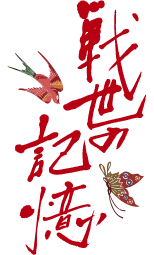
“North of mainland Okinawa, Evacuating from Asahikawa Village to Haneji”
“North of mainland Okinawa, Evacuating from Asahikawa Village to Haneji”
Sadako Higa, 85 years old
(Place of birth: Asahikawa, Nago City, Okinawa Prefecture)
I believe that I was a fourth or fifth grader back then. There were some bombings in Nago. However, because nothing horrible was happening where I was living, I did not yet feel that the war was really going on.
Upon the American air raid, American planes did not fly above where I was living. However, I heard that Naha was hit by a serious air raid. Then, some people from the coast came to the place where I was living. They said that they were evacuating. After the air raid happened, we lived in an air raid shelter. As I was a little child then, I did not feel scared. However, my mother and the adults around me figured that we no longer could stay there and we all went into the mountains in the morning and hid in the mountains.
Soon after that, the Americans landed and several American soldiers came toward us. There were many people who escaped from Naha, Shuri and the central southern area. As the American soldiers kept landing on the beach, we were scolded whenever we got a little noisy. We were told, “If you make a noise, the American soldiers will come.” We could not even chat.
We hid in the mountains all day long, from the morning till night. We did not have any problems with our meals. We had sufficient food.
There were no adult men with us then. All adult men were drafted and sent to Iejima due to the battles going on there. Therefore, we no longer had any adult men and what we had left there were the elderly and the women. In addition, there were small children to take care of.
There were some boys who were 14 through 16 years old, but all men who were in their twenties were drafted and sent to Iejima.
Under those circumstances with the arrival of the American soldiers, we had no choice other than to escape into the mountains early in the morning. After a while, we decided to move to Haneji since it no longer seemed safe to stay in the mountains. All together we moved to Haneji in a group of about 20 people. As we found it impossible to move on the road, we had to move through the mountains. We tried some roads, but we frequently came across American military vehicles. Whenever we came across a vehicle, we hid ourselves while saying, “Here come the Americans.”
We moved from one mountain to another. We sat down and slept at night together. When day broke, we started moving again. It took us three days or so to get to Haneji.
As mentioned, we could not take the road. There was a woman who was pregnant, we called pregnant women Kodomo-mochi (Japanese word for pregnant woman). She had a very hard time moving through the mountains, walking on trails and crossing rivers. I felt so sorry for her. Children were walking while holding hands. I felt sorry for them as well.
When looking back at the time of the evacuation, I feel that we worked very hard to make our way through the mountains. When I recall those days, I really feel that we suffered tremendous hardship.
Some Japanese soldiers came to our house and asked for some rice. They said, “Japan will win the war soon. It is not before long. It is soon coming.” After getting some rice, they headed back. While Japan was losing the war, they kept saying, “Japan will win.” Even so, since they also were having hard time without any food, they were pitiable, I believe.
(Looking back at the war)
The war I experienced was horrible and it should not happen again. War does not produce anything. War is truly something horrible.
Sadako Higa, 85 years old
(Place of birth: Asahikawa, Nago City, Okinawa Prefecture)
I believe that I was a fourth or fifth grader back then. There were some bombings in Nago. However, because nothing horrible was happening where I was living, I did not yet feel that the war was really going on.
Upon the American air raid, American planes did not fly above where I was living. However, I heard that Naha was hit by a serious air raid. Then, some people from the coast came to the place where I was living. They said that they were evacuating. After the air raid happened, we lived in an air raid shelter. As I was a little child then, I did not feel scared. However, my mother and the adults around me figured that we no longer could stay there and we all went into the mountains in the morning and hid in the mountains.
Soon after that, the Americans landed and several American soldiers came toward us. There were many people who escaped from Naha, Shuri and the central southern area. As the American soldiers kept landing on the beach, we were scolded whenever we got a little noisy. We were told, “If you make a noise, the American soldiers will come.” We could not even chat.
We hid in the mountains all day long, from the morning till night. We did not have any problems with our meals. We had sufficient food.
There were no adult men with us then. All adult men were drafted and sent to Iejima due to the battles going on there. Therefore, we no longer had any adult men and what we had left there were the elderly and the women. In addition, there were small children to take care of.
There were some boys who were 14 through 16 years old, but all men who were in their twenties were drafted and sent to Iejima.
Under those circumstances with the arrival of the American soldiers, we had no choice other than to escape into the mountains early in the morning. After a while, we decided to move to Haneji since it no longer seemed safe to stay in the mountains. All together we moved to Haneji in a group of about 20 people. As we found it impossible to move on the road, we had to move through the mountains. We tried some roads, but we frequently came across American military vehicles. Whenever we came across a vehicle, we hid ourselves while saying, “Here come the Americans.”
We moved from one mountain to another. We sat down and slept at night together. When day broke, we started moving again. It took us three days or so to get to Haneji.
As mentioned, we could not take the road. There was a woman who was pregnant, we called pregnant women Kodomo-mochi (Japanese word for pregnant woman). She had a very hard time moving through the mountains, walking on trails and crossing rivers. I felt so sorry for her. Children were walking while holding hands. I felt sorry for them as well.
When looking back at the time of the evacuation, I feel that we worked very hard to make our way through the mountains. When I recall those days, I really feel that we suffered tremendous hardship.
Some Japanese soldiers came to our house and asked for some rice. They said, “Japan will win the war soon. It is not before long. It is soon coming.” After getting some rice, they headed back. While Japan was losing the war, they kept saying, “Japan will win.” Even so, since they also were having hard time without any food, they were pitiable, I believe.
(Looking back at the war)
The war I experienced was horrible and it should not happen again. War does not produce anything. War is truly something horrible.


